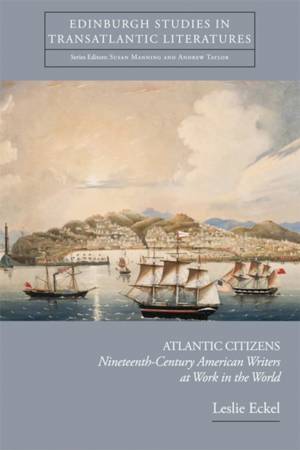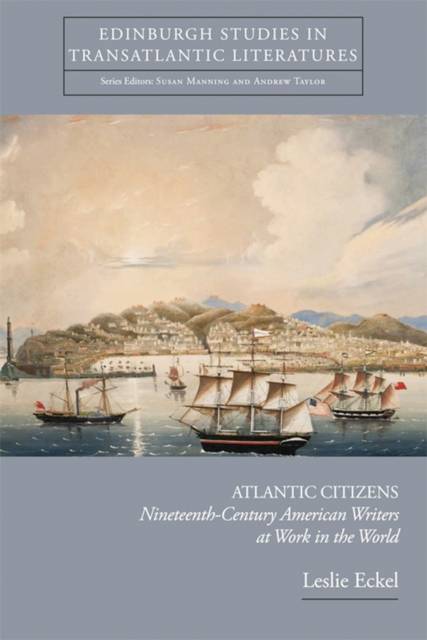
- Retrait gratuit dans votre magasin Club
- 7.000.000 titres dans notre catalogue
- Payer en toute sécurité
- Toujours un magasin près de chez vous
- Retrait gratuit dans votre magasin Club
- 7.000.0000 titres dans notre catalogue
- Payer en toute sécurité
- Toujours un magasin près de chez vous
Description
A rediscovery of the bold cosmopolitan activism and professional literary adventures of six antebellum writers
By looking beyond the page and into the extraordinary lives of Walt Whitman, Henry Wadsworth Longfellow, Grace Greenwood, Ralph Waldo Emerson, Margaret Fuller and Frederick Douglass, this book uncovers their startling contributions to transatlantic culture and makes the argument that literature is dependent upon other modes of professional creativity in order to thrive.
Leslie Elizabeth Eckel shows how these six figures shaped their careers in the fields of education, journalism, public lecturing and editing in productive relation to their development as imaginative writers. To see Walt Whitman co-producing foreign editions of his work with British poets while exuberantly breaking free from verse strictures on the page, or to witness Margaret Fuller reporting from the battle ground in revolutionary Rome as well as writing her country's first feminist treatise is to comprehend more deeply the ways in which these writers acted in the transatlantic sphere. By practicing Atlantic citizenship, they were able to achieve critical distance from the United States and, paradoxically, to catalyse its ongoing growth.
Spécifications
Parties prenantes
- Auteur(s) :
- Editeur:
Contenu
- Nombre de pages :
- 248
- Langue:
- Anglais
- Collection :
Caractéristiques
- EAN:
- 9780748669370
- Date de parution :
- 18-02-13
- Format:
- Livre relié
- Format numérique:
- Genaaid
- Dimensions :
- 163 mm x 236 mm
- Poids :
- 517 g







